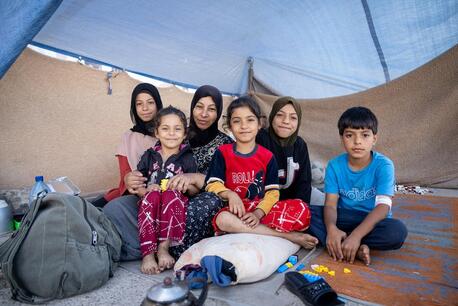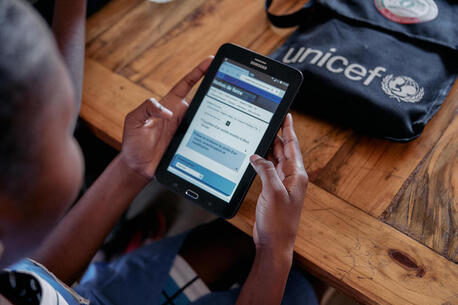
Connecting & Protecting: How UNICEF Supports Children's Futures in the Digital Age
Ready or not, new technologies are rapidly shaping our world. For children especially, the digital age can mean more access to education and opportunity — but also increased threats to privacy, protection and mental health.
UNICEF and partners are working to ensure more equitable access to education by connecting schools worldwide to the Internet while arming children and caregivers with the tools they need to protect themselves in this digital age.
It’s a fact: The Internet and other digital technologies are vital to supporting children’s education and access to opportunity. Yet, these technologies also pose risks.
Every time a young person accesses social media or messaging platforms, browses the Internet or otherwise engages in online activity, they face risks of cyberbullying or abuse, exploitation and exposure to violent content and misinformation. In fact, in 30 countries, more than one-third of young people reportedly experienced cyberbullying; In 25 countries, nearly 80 percent of children surveyed report feeling in danger of sexual abuse or exploitation.
Mental health and privacy are additional concerns; child-targeted marketing and data collection can lead to privacy breaches and increased screen time, the latter of which has been linked to negative mental health effects, particularly for children and adolescents.
As technology evolves, so does UNICEF
The good news? UNICEF and partners are constantly scaling their strategies to not only protect children online, but to also ensure that the newest digital technologies are designed and implemented with children’s rights and protections in mind.
Through awareness raising, sharing expert guidance and developing safe products, features and policies, UNICEF and partners (including governments and tech-industry giants) work to ensure that digital technologies help children worldwide access education, socialization and opportunity — safely.
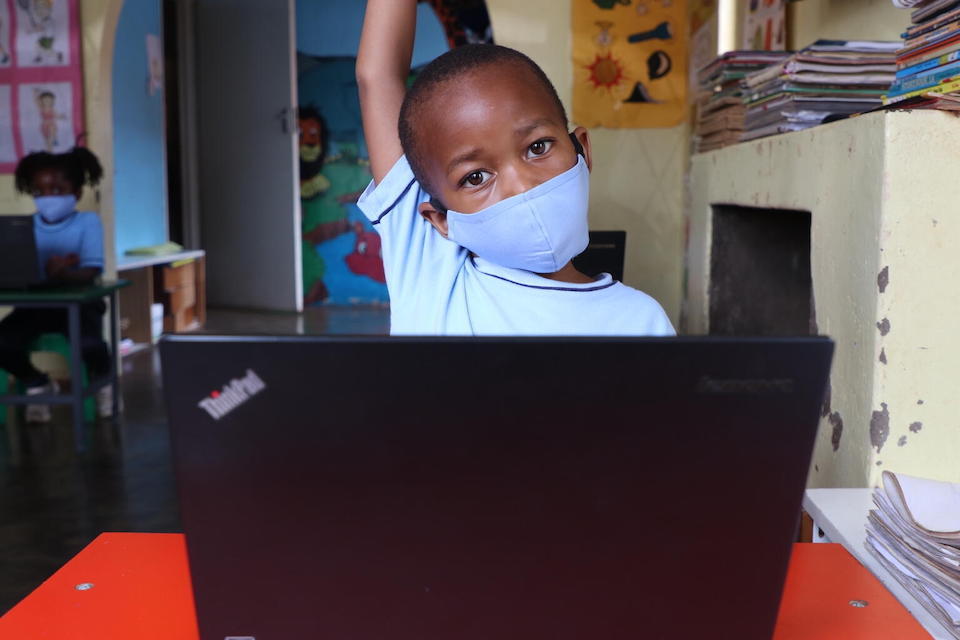
UNICEF’s U-Report and Voices of Youth initiatives are joining forces to support healthy social interaction, community building and inclusion among young people
U-Report is a social messaging tool that supports young people in amplifying their voices on the issues that matter most to them while connecting them with like-minded, advocacy-focused peers. The tool is available on multiple messaging, social media and SMS channels, and is used by millions around the world.
U-Report has also been used among teens in emergency settings. During intense flooding in Côte d’Ivoire, and tropical storms across Latin America and the Caribbean, users quickly shared emergency response details and tips on how to stay safe, reaching thousands of individuals and their loved ones with critical information when they needed it most.
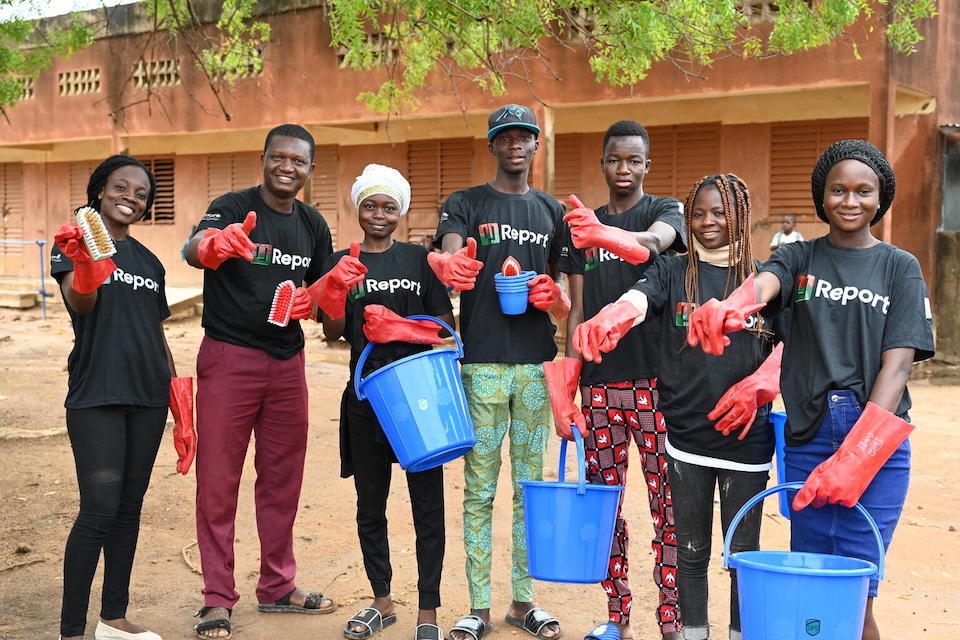
Similarly, UNICEF’s Voices of Youth platform provides a digital gathering place to encourage community, inclusion and advocacy among young people. Since 1995 — before the launch of social media as we know it today — young leaders have shared ideas, engaged in conversations and advocated for action on social justice issues online via Voices of Youth in the U.S. and beyond.
This month, U-Report and Voices of Youth are merging into one safe, digital space where young people can find support for taking meaningful action, amplifying their voices and making a difference. This new, combined U-Report platform will reach millions looking to effect positive change.
Giga, a joint initiative of UNICEF and ITU, is working to connect every school to the internet by 2030
In addition to merging its powerhouse youth advocacy platforms Voices of Youth and U-Report, UNICEF works with the International Telecommunication Union (ITU) to support an innovative initiative called Giga. Launched in September 2019, Giga aims to connect every school to the Internet and every young person to information, opportunity and choice.
With the help of machine learning and artificial intelligence, Giga maps schools’ Internet access to identify connectivity needs in real time. Giga has mapped more than 1 million of the estimated 6–7 million schools globally. This information is vital to governments and funders.
Giga also creates models for financing and supports government contracts for connectivity. By mobilizing $5 billion to deliver critical infrastructure, Giga and its partners are effectively closing the digital divide and ensuring that schools and students around the world have the tools they need to access information, education and opportunity.
To date, Giga has expanded its work to 30 countries and aims to have every school on the planet connected to the Internet by 2030. Through its three-step process — mapping, financing and connecting — Giga is equipping governments worldwide to connect their schools and communities to the Internet and build a strong foundation for meeting their future digital development needs.
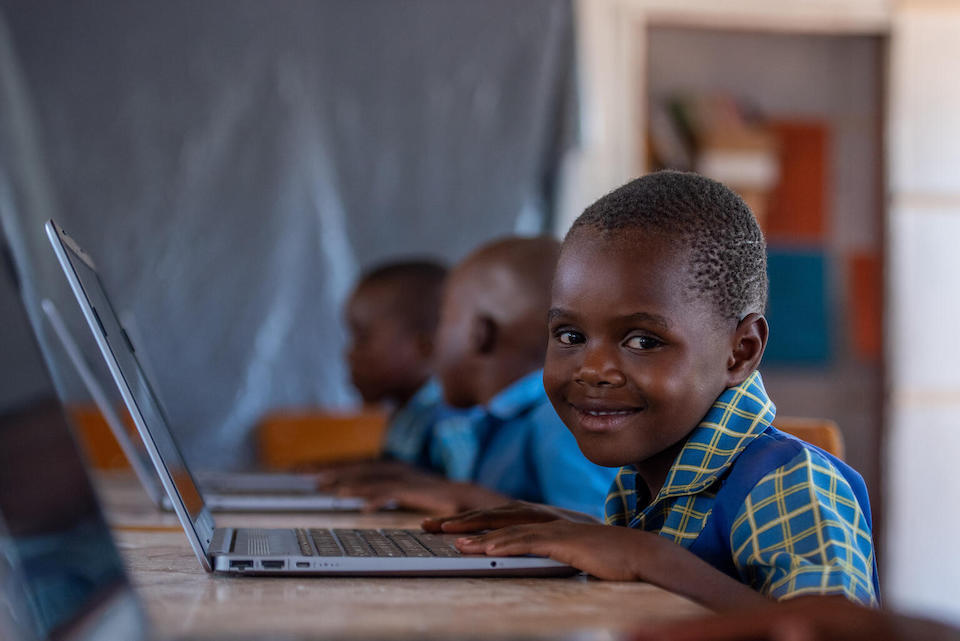
Through the Learning Passport, UNICEF is ensuring that children and young people have the opportunity to gain the skills and learning needed to thrive
UNICEF, with the support of global partners like Microsoft, is delivering learning to children in and out of the classroom with the Learning Passport, a free online, mobile and offline solution that provides access to flexible and quality education. Education is every child’s right, but due to many circumstances, it’s not a reality. Conflict and war, climate change impacts and gender-based stigmas and violence are just a few factors that make access to education — and opportunity — vulnerable.
When the COVID-19 pandemic disrupted education for 1 billion children worldwide, UNICEF and Microsoft scaled the Learning Passport to ensure continued learning access — a critical initiative to keep learners on track during unprecedented times. The Learning Passport in Ukraine brings together a range of educational courses and is accessible online, through mobile phones and offline, too, making it possible for children to continue learning where there is damage to IT infrastructure. In 2023 alone, the Learning Passport reached learners in over 38 countries including Syria, Poland and the Philippines to help children, adolescents and their families living in or impacted by emergencies continue to learn, gain critical skills and access resources to support their mental health. The program is instrumental in developing learners' critical digital literacy skills, encompassing safe online navigation and responsible digital citizenship.
As children and adolescents worldwide face more frequent and severe disruptions to their education, the Learning Passport continues to prove itself an invaluable tool.
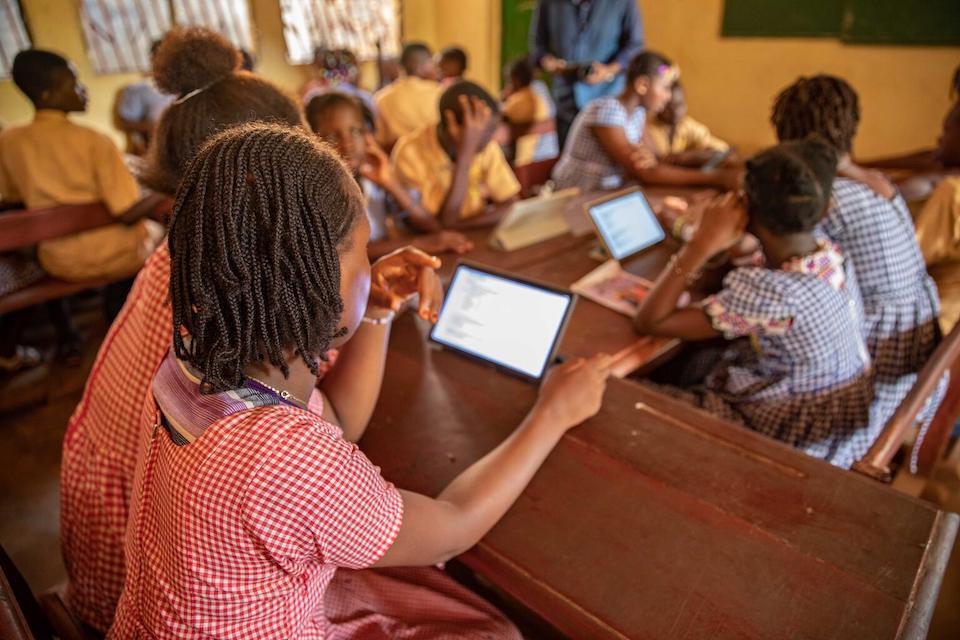
As the digital age continues, UNICEF remains committed to ensuring that emerging technologies play a role in protecting and upholding children’s rights
From connecting remote classrooms to the Internet with Giga to empowering young voices through the newly merged U-Report and Voices of Youth platform, UNICEF is not just responding to the challenges of today but is actively shaping a future where technology serves as a tool for opportunity — for every child.
Join U-Report's global youth community to get inspired, take action and be part of the change.
For parents and caregivers: 8 Strategies to Keep Your Child Safe — Online and Off
HOW TO HELP
There are many ways to make a difference
War, famine, poverty, natural disasters — threats to the world's children keep coming. But UNICEF won't stop working to keep children healthy and safe.
UNICEF works in over 190 countries and territories — more places than any other children's organization. UNICEF has the world's largest humanitarian warehouse and, when disaster strikes, can get supplies almost anywhere within 72 hours. Constantly innovating, always advocating for a better world for children, UNICEF works to ensure that every child can grow up healthy, educated, protected and respected.
Would you like to help give all children the opportunity to reach their full potential? There are many ways to get involved.




